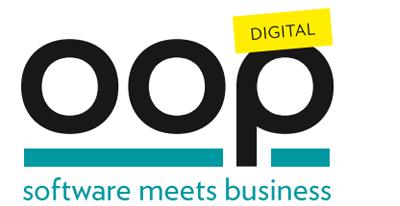Please note:
On this page you will only see the English-language presentations of the conference. You can find all conference sessions, including the German speaking ones, here.
The times given in the conference program of OOP 2023 Digital correspond to Central European Time (CET).
By clicking on "VORTRAG MERKEN" within the lecture descriptions you can arrange your own schedule. You can view your schedule at any time using the icon in the upper right corner.
Thema: Workshops
- Montag
06.02.
Do you like some of what you find in the common scaling frameworks but don't buy-in to everything? Then, go to the essence!
This session will present and share a set of principles for scaling, which you can use to roll-your-own approach or properly contextualise the usage of an existing framework such as LeSS, Scrum@Scale or Nexus.
Unlike other scaling approaches, these guidelines are non-prescriptive and recognise the value of elements in many scaling frameworks.
Target Audience: Managers,…
This highly interactive workshop is all about software architecture - with Spring Boot, the Java microservice framework. Using an example application, we will discuss and try out the following topics in code:
- REST API design
- Hexagonal architecture
- Bean validation
- Single sign-on with Keycloak
- Role-based security
- Optimistic locking with ETags
- OWASP dependency check
- Structured JSON Logging
- Error handling
- Integration tests with Cucumber
- Architecture tests with ArchUnit
- Local deployment…
Today we must deal with shorter time-to-market, increasing complexity and more agility while keeping quality and other key system properties high.
To address these challenges the right balance in testing w.r.t. independence, timing, automation, and formality is critical but often not explicitly tackled.
Therefore, in this interactive tutorial we reflect on our current approach on balancing testing, investigate and discuss needed strategies, tactics, and practices, and share experiences to…
Approval testing is a technique that helps you to get a difficult codebase under test and begin to control your technical debt. Approval testing works best on larger pieces of code where you want to test for multiple things and interpreting failures is challenging.
In this hands-on session we'll introduce a commonly-used Approval testing tool for Java and through hands-on exercises learn to get control of some example code. The same tool is also available for many other programming languages,…
Join this tutorial to experiment with a self-reflection process, designed to bring balance into your own development journey.
Rooted in professional coaching practices from Co-Active Coaching, connected with several Liberating Structures, and inspired by ideas from Emotional Agility, this session will help you clarify your goals and aspirations as well as find the right balance for 2023.
Why do you do what you do? What’s important to you about it? What’s next?
Discover answers to these…
How often have you heard that “Yes this is important, but we don’t have the capacity right now” or “sure let’s put it in the backlog”?
At least 1 in 5 people in the UK have a long-term illness, impairment or disability. Many more have a temporary disability. A recent study found that 4 in 10 local council homepages failed basic tests for accessibility.
Bring a laptop.
Max. number of participants: 20
Target Audience: Everyone
Prerequisites: None
Level: Basic
Extended Abstract:
How often have you…

